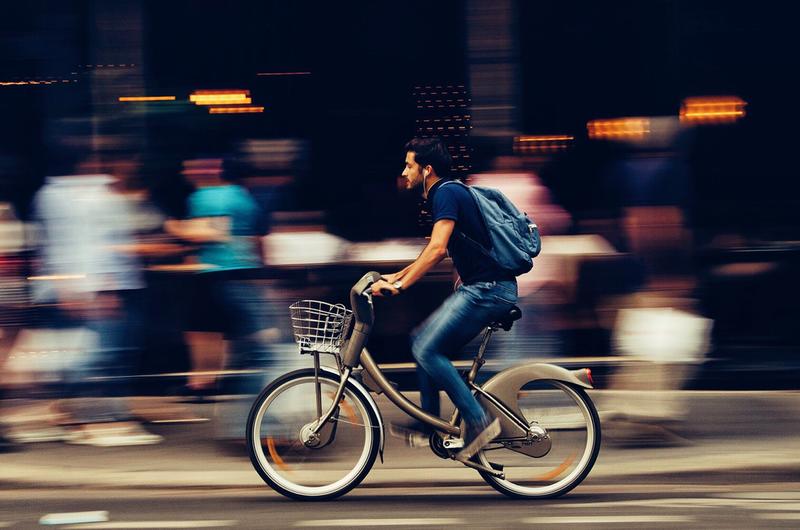How Long Does It Take to Bike a Mile?

If you’re going to ride your bike for one mile, how long will the trip take? There’s not a single answer to the question. Just as people walk and run at different speeds, they also cycle at different speeds.
A more experienced cyclist will need less time to ride a mile than someone who’s an absolute beginner or who is not in shape. The conditions of the road and the weather can also affect travel speed. It takes less time to go a mile on a flat surface than it does to go one mile up and down hills or uneven terrain.
How Long It Might Take a Beginner to Bike a Mile?
If you’ve never ridden a bike before or if it’s been a while since you’ve ridden, you can expect to spend about five or six minutes traveling one mile. Riding one mile in six minutes means you’re traveling at a speed of about 10 miles per hour.
How physically fit you are might make your one-mile time slower or faster. If you run or participate in other forms of cardiovascular exercise regularly, you might find that your speed is faster than 10 mph. If you don’t usually do any type of exercise, you might find that things are slower. Don’t get discouraged if your mile time is more than six minutes when you’re first starting out.
How Long It Might Take an Experienced Cyclist to Bike a Mile?
The longer you ride and the more you train, the faster you’ll get. An experienced cyclist might be able to ride 20 miles in an hour, meaning they can ride for one mile in just three minutes.
Professional riders are often much faster than even the most experienced amateur cyclists. According to Bicycling, a pro rider in the Tour de France has an average time trial speed of up to 31 mph. That means a pro cyclist can travel one mile in about two minutes.
What Affects Bike Speed?
It’s not only your experience level that affects how quickly you’re able to ride a bike. The terrain, road conditions, and weather will all affect your bike time. For example, it’s usually a lot easier to ride on a surface that’s completely flat compared to a hilly or mountainous terrain. You’re likely to find that it takes you less time to ride a mile on a flat road than it takes you to ride a mile while climbing a hill.
The quality of the road surface also affects your ride speed. You’re going to travel more slowly on a bumpy road or cobblestone street compared to a smooth, paved surface.
Fastest Bike Time
Some pro riders have left the rest of us in the dust when it comes to speed. In September 2018, a 45-year-old cyclist named Denise Mueller-Korenek set the world record for the fastest bike time. Riding on the salt flats in Utah, she reached a speed of nearly 184 mph, according to the Guinness Book of World Records. At that speed, it took her about 20 seconds to travel one mile.
How to Improve Your Speed on a Bike
While it’s unlikely you’ll reach speeds of more than 100 mph on your bike, with training, you can get better and faster. The type of bike you ride matters. You might notice a slight improvement in speed riding a lightweight bike with dropped handlebars.
Focusing on strengthening your muscles can also help you improve your speed as can losing extra weight. You might notice that you get faster if you switch from wearing loose-fitting clothes while riding to wearing tight-fitting bike shorts and bibs.





